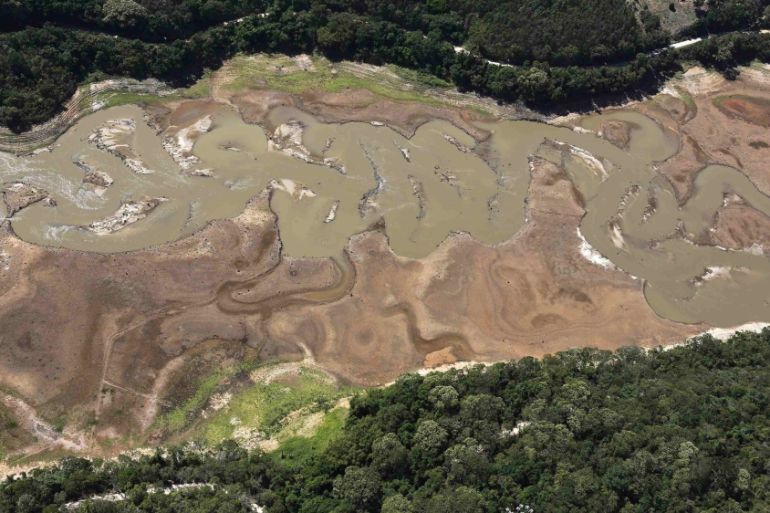Brazil facing worst drought in decades
Rio De Janeiro experiencing severe water crisis, while Sao Paulo suffers worst conditions in nearly 100 years.

Severe drought and water shortages are causing blackouts and threatening a range of businesses in Rio De Janeiro and Sao Paulo, authorities have said.
Rio de Janeiro state’s government warned on Friday that the Rio region was experiencing its worst-ever water crisis, while low water levels in the Paraiba do Sul river affected Brazil’s largest city, Sao Paulo, which is suffering ts worst drought in nearly 100 years.
Keep reading
list of 4 itemsCould shipping containers be the answer to Ghana’s housing crisis?
Thousands protest against over-tourism in Spain’s Canary Islands
Holding Up the Sky: Saving the Indigenous Yanomami tribe in Brazil’s Amazon
Environment Secretary Andre Correa said the Rio state government would implement water rationing after July, even if rains fail to materialise during what is supposed to be the current rainy season.
However, water infrastructure expert Marilene Ramos said that “six months is too long to wait” for water conservation measures, such as hiking rates for those who use too much water and decreasing the amount industries can use.
“It’s absolutely urgent those measures be taken right now, it cannot be postponed,” Ramos said.
Blackouts
The water shortage is threatening to shut down businesses that can not operate without it.
“If we don’t receive the water truck and we don’t have water, the factory has to stop, our machines only work with a cold system and it works if we have cold water,” Mauricio Colin, director of Daicast Industry, which runs a metal factory in Sao Paulo, said.
Sao Paulo’s residents said the last few days have been plagued by blackouts that have affected parts of the city and the suburbs.
The state government said its measures to conserve water were working, including offering discounted water bills for those who limit usage, and reducing water pressure during off-peak hours.
Although declining water supplies have been a concern since last year, Sao Paulo authorities have resisted rationing water.
The government says it will double the bills of some customers who increase consumption above monthly averages.